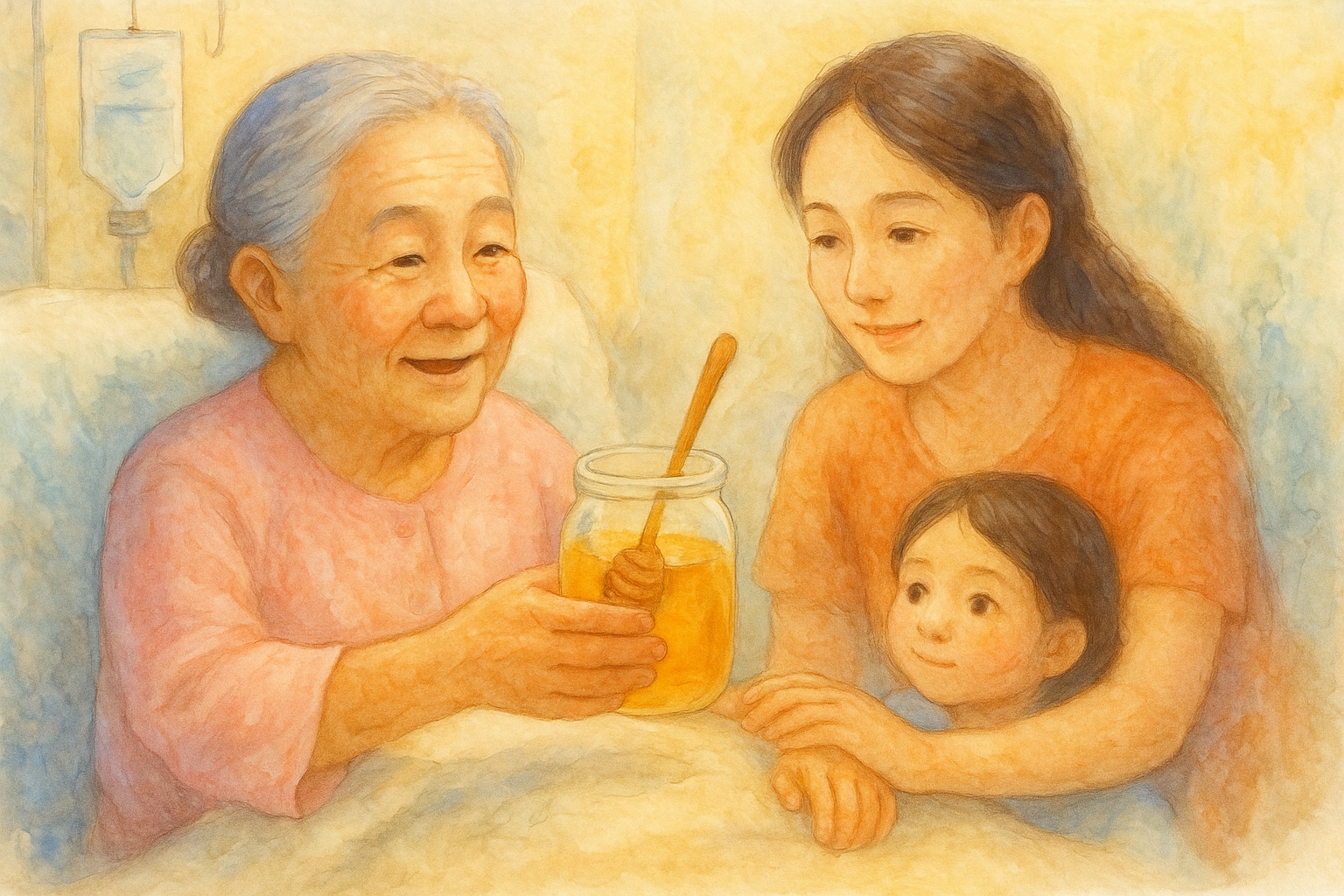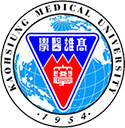- KMU Senior Vice President / CHIH-LUNG LIN , M.D., Ph.D.-

Honey is like nature’s nectar—sweet but not cloying. It condenses the essence of flowers, making it not only delicious but also nourishing.
Granny Tsai comes from a beekeeping family. She’s as down-to-earth and kind as the friendly auntie next door. This time, she was hospitalized for suspected spinal metastasis and was, unfortunately, diagnosed with cancer that had spread to her spine. For elderly patients, I generally avoid revealing bad news directly. Instead, I first discuss with the patient’s son and daughter-in-law how and when to inform her, as well as the treatment options ahead.
Their decision mirrored a common practice in Taiwan—“Let’s not tell Granny yet.”
We told her it was just a small benign tumor, and that a minor surgery to remove it would relieve her symptoms. But I struggled internally. Granny was fully conscious, with clear hearing and sharp awareness—surely she deserved the right to make this final important decision herself. According to the principle of autonomy in medical ethics, a patient’s right to their own body and choices should be respected. Physicians should provide sufficient information to help patients make an informed decision, not impose or withhold the truth.
Each time I entered the ward, I would peek through the curtain to see her. I always wanted to tell her the truth, but kept hesitating.
Granny would lie there quietly, pain showing clearly in her expression, while her daughter-in-law stayed by her side like a devoted daughter. This time, I had made up my mind—I would let her know, so that she could make her own decision.
“Granny, I’m Dr. Lin.”Even before I drew open the curtain, her laughter floated toward me. Everyone in the room instantly got into position, as if a carefully rehearsed play was about to begin.
“Dr. Lin, would you like some honey tea? Our family’s honey tea is the best—you must try it!” She spoke like a warm-hearted shopkeeper, sincere but not too good at selling.
Was she really forgetting her pain, or was she pretending to be strong so her children wouldn’t worry? Her daughter-in-law smiled stiffly, like an amateur actress still honing her craft. The lines I had prepared disappeared from my mouth, and I could only improvise, going along with this heartwarming performance.
The curtain closed like a stage’s final bow, but the pain behind the scene never stopped.
The same play repeated daily. The other patients and families in the four-bed ward watched everything, aware of the truth. As time went on, the acting improved—but the script never changed. There was no ending, only endless repetition.
The nurses called her “Honey Tea Granny” because she always offered everyone honey tea.
They knew her pain better than anyone—after all, they cared for her day and night, witnessing her most vulnerable moments.
Granny underwent surgery and also received radiation therapy. But the cancer continued to invade her bones. Though we never explicitly told her the diagnosis, she went to radiation, consulted the oncology team… how could she not know?
One day, I finally couldn’t take the charade anymore. I asked her directly,
“Granny, do you know what illness you have?”
This unscripted line shook the stage. Everyone froze, as if unwilling to keep performing.
Granny smiled softly and said,“I’ve known all along it’s cancer. But my children are so filial—they didn’t want me to know because they were afraid I’d be upset. So I just went along with it, pretended I didn’t know, so they could worry less.”Hearing this, her daughter-in-law burst into tears.And it was Granny who turned to comfort her.
I still remember the atmosphere in the room that day—heavy, and unusually quiet.
The play had ended, but neither actors nor audience had left the stage.
After that day, Granny still offered me honey tea, but the expressions on her and her daughter-in-law’s faces became much more natural.
And I noticed something else: once she stopped acting, she could no longer hide her pain.
This great mother, even at the end of her life, still put her children’s worries before her own. Isn’t that the very definition of a mother’s love?
It reminded me of my own mother.
She had high blood pressure and diabetes. I often warned her not to drink sugary drinks, and she would always smile and say, “Okay, I’ll listen to Dr. Lin.”
But she lived in Tainan, cared for by my elder sister. I never knew she had a little secret pact with her granddaughter.
After my mother passed away suddenly, my young niece—who hadn’t even started kindergarten yet—told me,
“Grandma took me to the vending machine every day. We’d get Jasmine Honey Tea. One bottle for her, one for me. We promised we couldn’t bring it home or tell anyone.”
If time could be rewound, I would never have forbidden her from drinking honey tea.
The sweetness of honey is like a mother’s love—gentle and enduring, never overwhelming, yet always present.
A mother’s love is like honey: sweet but not cloying, nourishing in silence, lingering in the heart.
It quietly dissolves into a cup of tea, bringing warmth—just like a mother handing you a hot drink when you are weary, comforting without words.
It delicately infuses pastries, turning ordinary flavors into richness—just like a mother’s love, asking for nothing in return, yet enriching our whole lives.
Honey also has healing power—it soothes a dry throat, mends broken wounds.
Isn’t that the perfect image of a mother’s love? Always there to ease our pain, wordlessly, yet full of strength.
